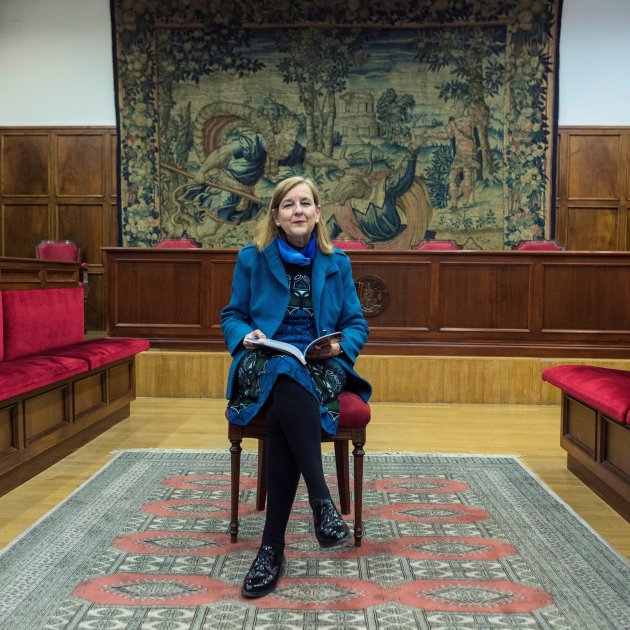There are only two sexes: men and women; homosexuals suffer from various diseases; it's not true that abortion being illegal means more women die in clandestine procedures; women "today don't want to become emancipated from anything", they had to join the labour market to "humanise it". These are just some of the controversial statements made over the years by the Spanish judge who has just been elected to the European Court of Human Rights (ECHR), María Elósegui, as reported by ElDiario.es (in Spanish).
The choice might seem contradictory or incongruent, given that the ECHR, as its name would indicate, is the highest-ranking court in Europe safeguarding human rights and fundamental freedoms. That said, in 2016 the court ruled, its 47 judges unanimous, that marriage between people of the same sex is not a right and they gave the different countries of the EU the right to legislate on the matter as they see fit.
Elósegui, the first female Spanish judge on the court, has defended the difference between the concepts of sex and gender, but merges gender and sexual identity and says that although they can be "constructed" separately from a person's sex, this "doesn't mean that the result will be positive".
The consequences
In a 1995 article in Aceprensa, where she insists on emphasising that the distribution of jobs in a marriage "is absolutely arbitrary" and "has no biological basis", the judge also say that "one thing is that there would be tasks which can be carried out equally by the man or the woman, and another thing is that there exist sexual identities and androgynous or neuter people" because "the person is inseparable from the body and, as such, is a sexed being, who always develops their qualities with nuances appropriate to their sex".
In 2014, in an article in El Comercio, she supported a decision by Peru's Constitutional Court to deny a transgender woman to change her gender on her official documentation. She wrote that "Peruvian law has given protection to sexual identity based on the unavailability of records of chromosomal sex". And not just that. Also, on the website Almudi.org (in Spanish), linked to the Catholic organisation Opus Dei, she says that, in a book she had just published, "we clarify something very simple, the thesis that there is no third sex and that every man or woman is that: a man or a woman".
The new Spanish judge in Strasbourg tries to show herself as open-minded arguing that "every individual has to be free to develop their sexual identity as they wish", however, she continues: "you cannot avoid the consequences". "Those who construct and carry out their sexual behaviour in agreement with their biological sex will develop balanced and healthy behaviour, and those who work against their biology will develop various pathologies. That's clear".
Elósegui's CV
Elósegui is a fully-fledged member of Opus Dei and has dedicated part of her life to studying legal equality between men and women. Among other things, she's a corresponding member of the Royal Spanish Academy of Jurisprudence and Legislation, an institution whose objective is "to contribute to perfecting legislation". It won the 2008 Luis Portero Human Rights prize.
She also took part in drafting the Law for the Effective Equality of Men and Women promoted by Zapatero's PSOE government, a law which the PP ended up appealing to the Constitutional Court, although the court didn't accept to consider the appeal.
The new ECHR judge has written 17 books, including "The face of violence. Beyond women's pain" (literal translation, unavailable in English), which argues that faithfulness is an "important value for the man, but even more for the woman" and says that a person who consumes pornography "has symptoms of a psychosexual character which require diagnosis".
